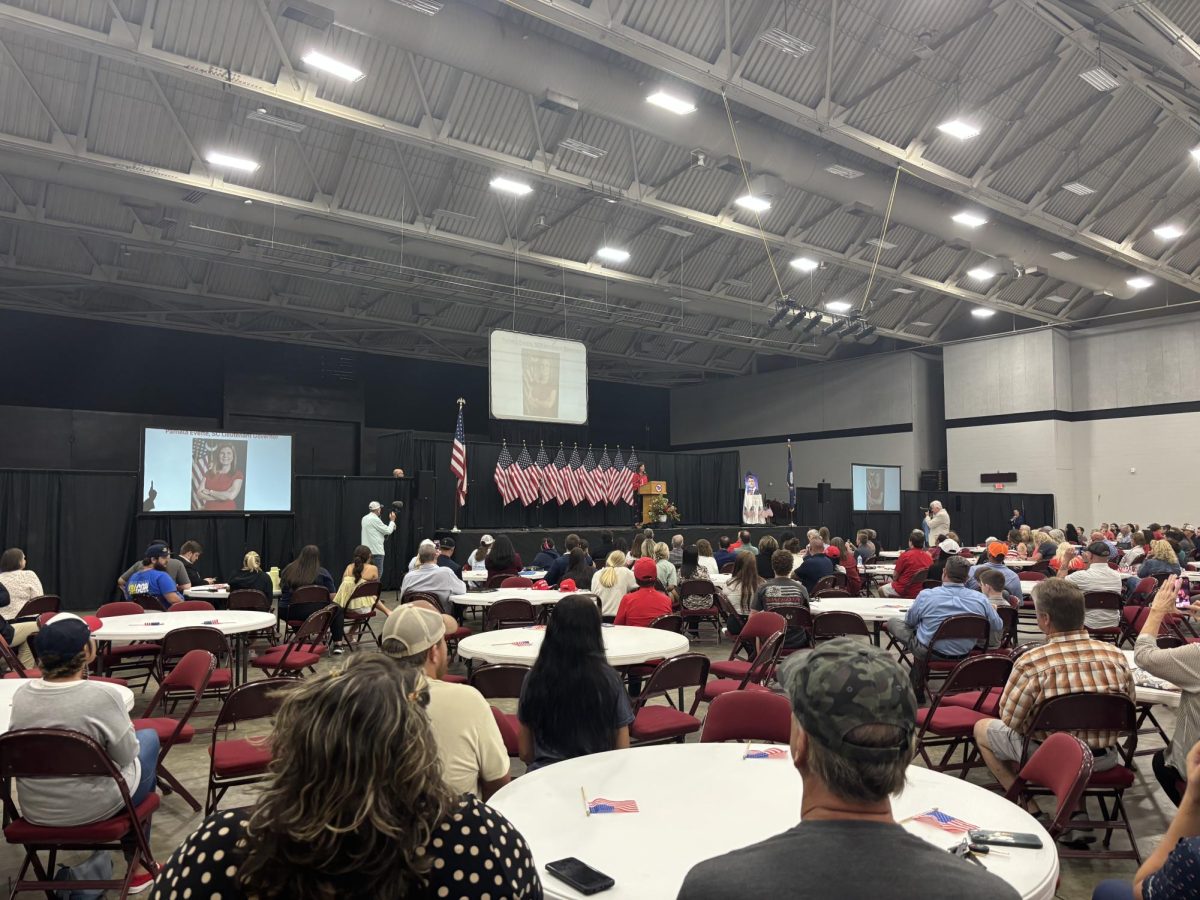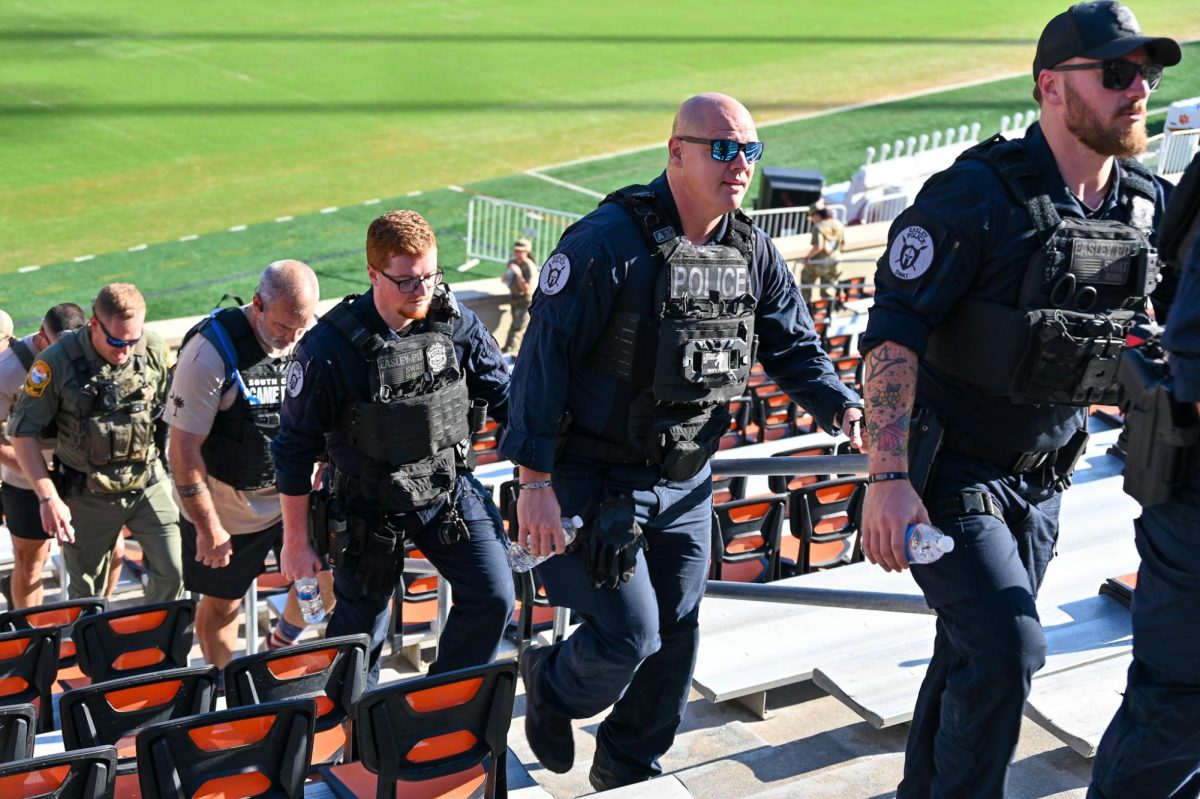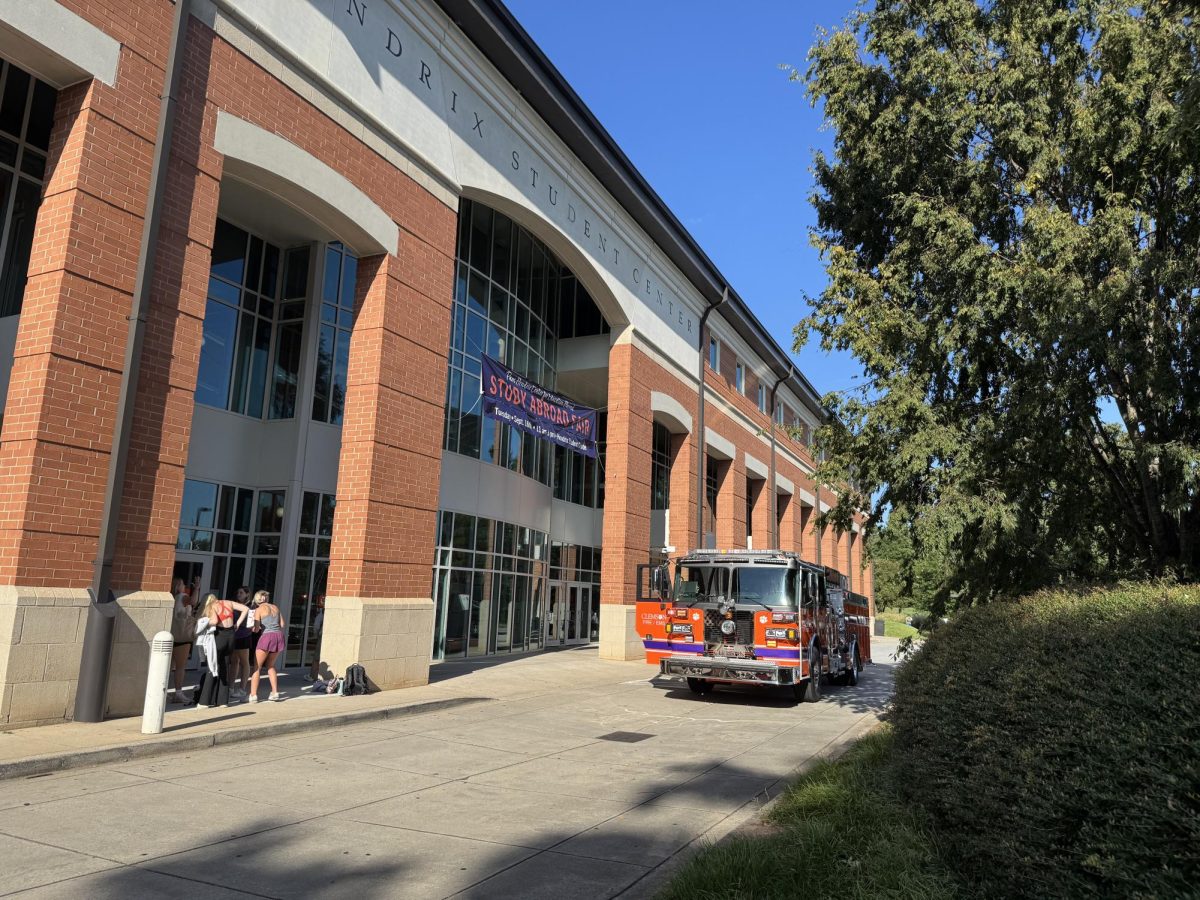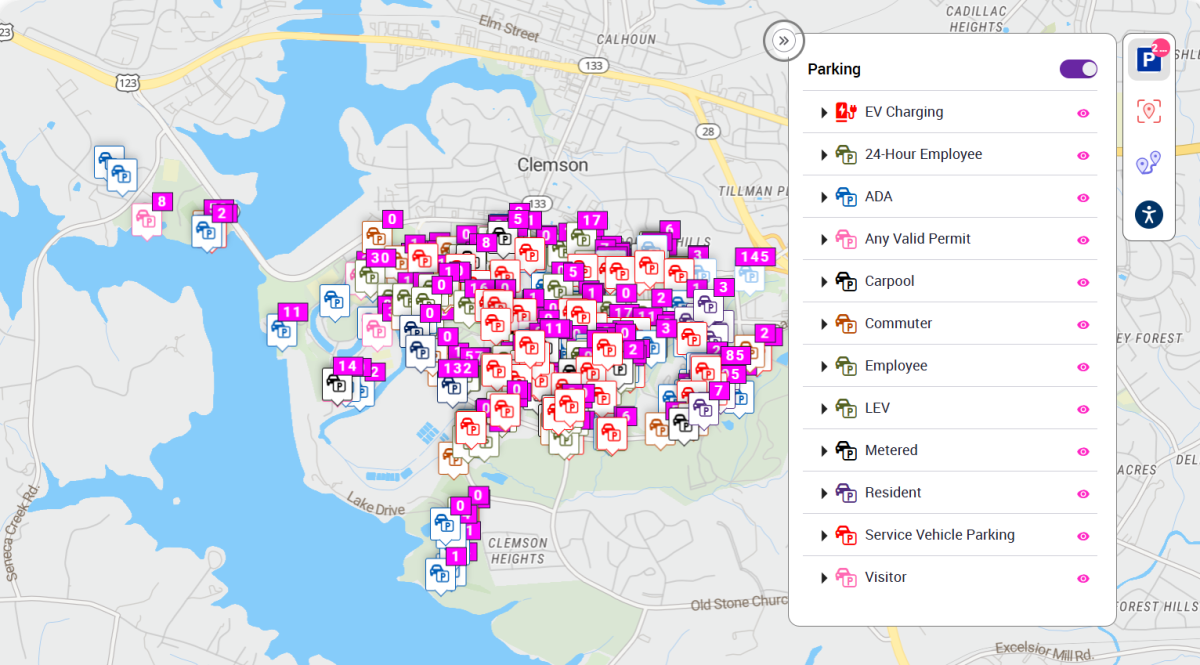Eight minutes and 46 seconds. For eight minutes and 46 seconds, George Floyd was pinned to the ground by a Minneapolis police officer who kneeled on his neck. For eight minutes and 46 seconds, an estimated 3000 members of the Clemson community came together to silently think about the things that brought them together on Bowman Field on Clemson University’s campus.
On the evening of June 13, 2020, four Clemson football players witnessed thousands come together to be a part of the Clemson Community Peaceful Demonstration. Darien Rencher, Cornell Powell, Trevor Lawrence and Mike Jones Jr. were the lead organizers of the event, and they hosted the opening and closing remarks.
“I feel like it all kinda started when the video of George Floyd got out,” Jones said in an interview before the demonstration. “You know, I felt it in my heart. I wanted to do something.”
Following the opening remarks, which included Clemson’s chief of police and two Clemson students, all attendees were asked to participate in an eight-minute-and-46-second moment of silence. Every minute, Rencher read off the following words, meant to inspire thoughts for change: unity, justice, peace, love, our nation, our state, our communities, our homes and prayer for change. Once the moment of silence ended and everyone rose from their knees, the march began.
“I’ve just never had conversations like this in my life before,” Jones said. “Nobody’s ever asked me, ‘hey, how does this make you feel?’ And now, I’m having more conversations like that than literally I’ve had in 21 years of life.”
During the two-mile march, the attendees used their voices to portray their message. Chants such as “I can’t breathe,” “What’s his name? George Floyd” and “What’s her name? Breonna Taylor” were heard throughout the mass of people. Some were led by Jackson Carman and K.J. Henry, who both used bullhorns to be heard throughout the crowd. Other chants were simply prompted and carried out by those in the middle or at the end of the march.
Signs were also abundant in the midst of the march, which stretched toward Douthit Hills before doubling back through downtown Clemson.
Many read “I can’t breathe” and “Black Lives Matter.” Others displayed statements such as “all lives can’t matter until Black lives matter” or “if this upsets you, stay home for Saturday games.”
Rencher’s own sign, which read “‘matter’ is the minimum / black lives are worthy / black lives are beloved / black lives are needed” was originally used by the University of South Carolina’s quarterback, Jay Urich, during a march in Columbia a week earlier. Urich mailed the sign to Rencher when he heard about the demonstration to show his support.
The organizers acknowledged the other demonstrations and protests that have been happening across the nation and globe, and they also spoke about the people who have fought and made their voices heard in years past.
“As I stand here, I don’t want to paint the picture that change hasn’t happened,” Rencher said. “So I honor those brave men and women who took those steps, years ago. Our parents, our grandparents, all those that have gone before us.”
Once the marchers regathered at Bowman Field, closing remarks were given by Rencher, Lawrence, and Clemson football Head Coach Dabo Swinney. “Amazing Grace” and “Way Maker” were then performed, and Rencher finished the demonstration by having attendees link arms and pray together.
While that ended the demonstration, it was clearly not meant to be the end of the movement at Clemson University. Just the day before, on June 12, 2020, Clemson’s Board of Trustees unanimously voted to rename the Calhoun Honors College to Clemson University Honors College. They also formally asked the South Carolina General Assembly for permission to rename Tillman Hall, Clemson’s iconic clock tower, Main Building once more. Before being renamed Tillman Hall in 1946, the building was recognized as “Old Main” by students and staff, and many members of the Clemson community still refer to it as “Old Main” today. According to Clemson’s President Jim Clements, the clock tower is the only exception to South Carolina’s Heritage Act, which prevents buildings, streets, monuments and more from being renamed or changed, that Clemson University is seeking.
The organizers of the demonstration expressed their happiness with the steps that Clemson University has made in acknowledgement and support of the Black Lives Matter movement. However, they also urged everyone present to think of the demonstration as nothing more than a first step.
“I was happy [about the renaming of the honors college], but I wasn’t satisfied,” Powell said. “You know, there’s a lot more that has to be done, and those are the steps. You know, you gotta settle for the small victories to make the change, but we’re not satisfied. We’re still hungry for more.”
The organizers seemed hungry for more to be done by the university, but also by everyone who attended the march.
“This is really our chance to make a difference,” Rencher said. “So, the question becomes, why are we all here? We gathered together to march, but where do we go from here? Let’s not look away from the problems, but look for opportunities for solutions.”
One such way the attendees were intended to further the movement was to listen. Both Swinney and Lawrence spoke of the ways in which they have listened over the past weeks and how they are taking steps to learn.
“There’s three main things that I’ve learned,” Lawrence said. “I’m learning to listen more. I’m learning that listening is usually more valuable than talking. You learn when you listen, and you begin to understand when you listen. I’m learning to try and put myself in the shoes of those who are in pain…I’m also learning that love can conquer all things, and that love will bring change.”
In the aftermath of the demonstration, the marchers returned to their homes and the stage was taken down. However, while the view of Bowman Field returned to what it once was, the ideas of those who attended the march would not be so easily reverted. The speakers made it clear that this was a first step, and it is likely that this advocacy and these voices for equality will continue into the coming semester.
“Why?” Rencher said, in one of his final statements. “Why is it different this time? Because this time, America didn’t look away.”








